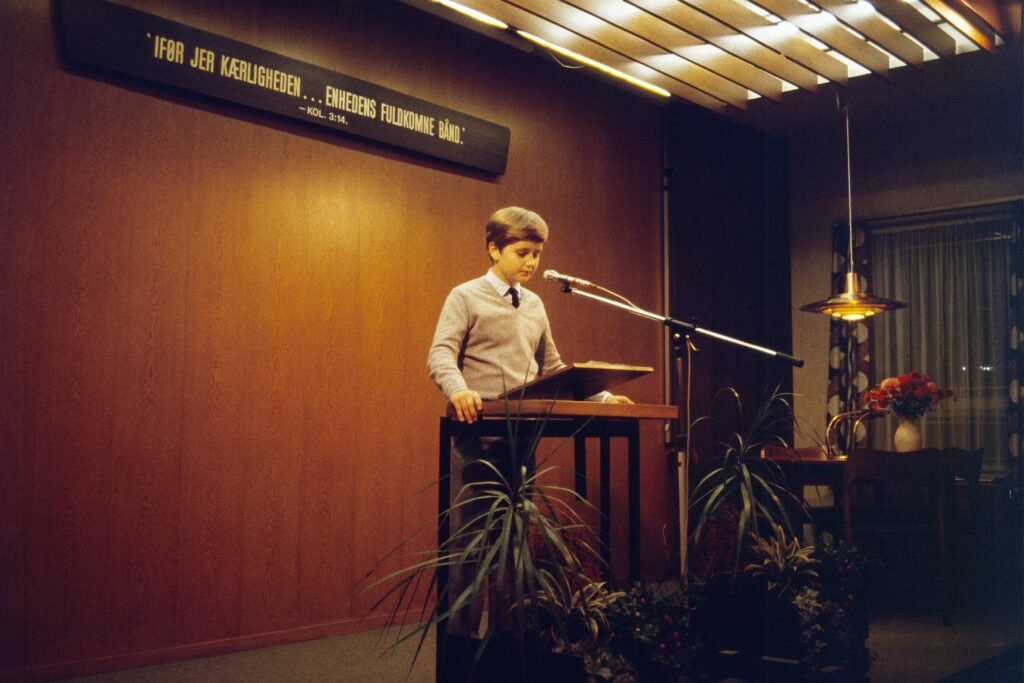
Live Chat Jobs – You have to try this one
Amazing New AI Technology Builds An Entire Business For You From Scratch
Intro
As parents, one of the most challenging and heart-wrenching conversations you may ever have to have with your children is about divorce.
How to tell kids about divorce is a delicate process that requires empathy, honesty, and a deep understanding of the complexities involved.
In this guide, we will explore the best ways to approach this sensitive topic, from considering the impact of age on children’s understanding to crafting your message with care and compassion.
Understanding the Impact: Why Age Matters

Navigating the waters of divorce with children in tow requires a nuanced understanding of how their ages influence their comprehension and emotional response.
It’s crucial to recognize that children at different developmental stages will perceive and process the news of divorce in varied ways.
Toddlers and young children may find it challenging to understand the concept entirely, often perceiving it in very concrete terms related to their immediate world.
They may question where their parents will live or who will take them to school, needing reassurance about their daily routines and care.
School-aged children, on the other hand, might grasp the concept with more clarity but struggle with feelings of guilt or responsibility, mistakenly believing they could have prevented the divorce.
They might also harbor fantasies about their parents reconciling. It’s essential to address these misconceptions directly and gently, ensuring they understand the permanency of the decision in a way that doesn’t overwhelm them.
Adolescents can experience a more profound emotional turmoil, navigating their sense of identity amidst the seismic shift in their family dynamics. They might respond with anger, withdrawal, or even taking sides.
At this age, children are more likely to understand the complexities of relationships, but they still require clear, honest communication about the changes in their family structure without being burdened with adult issues.
Understanding the distinct needs and potential reactions of children at different ages allows parents to tailor their approach, ensuring that the conversation about divorce is as supportive and constructive as possible.
Each child’s individual personality, maturity level, and emotional intelligence will also influence how they react, underscoring the importance of a personalized approach to this life-changing conversation.
Before You Speak: Preparing for the Conversation

Embarking on the conversation about divorce with your children is not just about the words you say but also about the emotional readiness and setting in which you choose to speak those words.
The gravity of this dialogue cannot be overstated, and preparing yourself for it is a step that requires thought, compassion, and introspection.
Firstly, consider the environment that will provide a sense of safety and openness for this delicate discussion. Choose a quiet, comfortable place free from distractions, where your children feel at home.
It’s crucial that this setting encourages an open dialogue, where questions can be asked, and emotions can be freely expressed.
Timing also plays a significant role in how your message will be received. Opt for a moment when there is no immediate pressure to rush off to other activities, allowing ample time for your children to process the information and engage in the conversation.
This might mean setting aside a specific time when you won’t be interrupted, ensuring that you can fully focus on your children’s needs and responses.
Reflect on your emotional state as well. It’s important to approach this conversation from a place of calm and steadiness, despite the turmoil you might be feeling inside.
Consider seeking support or counsel beforehand, to clear your head and steady your heart. This preparation can help you approach the conversation with the empathy, patience, and clarity needed.
Additionally, think about how you and your co-parent can present a united front, if possible. Planning this conversation together and agreeing on key messages can help in providing consistency and reassurance to your children during this unsettling time.
Remember, the manner in which you prepare for and initiate this conversation sets the tone for how your children begin to navigate this significant change in their lives.
Your thoughtfulness in preparing for it speaks volumes of your love and care for them.
Crafting Your Message: What to Say and How to Say It

When embarking on the delicate journey of explaining divorce to your children, the way you craft your message is of paramount importance. Communicating with heartfelt honesty, while ensuring the conversation is appropriate for their age, is key.
Begin by expressing that the decision to divorce was made after a lot of thought and is a result of issues between the parents, emphasizing that it’s nothing the children have done or could have influenced.
It’s vital to convey this with sensitivity, avoiding any detailed discussions that could burden them with adult problems.
Frame your conversation around the concept of change rather than loss, highlighting that while the family structure is evolving, the love and care for them remain unwavering.
Use language that is clear and direct yet filled with compassion, ensuring they understand without feeling overwhelmed.
It’s also beneficial to prepare for questions they may have, offering straightforward, reassuring answers that reinforce their sense of security.
Let them know what they can expect going forward, like living arrangements, without making promises that can’t be kept.
This conversation is an opportunity to reinforce the idea that both parents will continue to be there for them, to love and support them, no matter the changes that lie ahead.
Above all, remind them of the unchangeable truth that they are deeply loved, and this decision is made with their best interests at heart.
Showing vulnerability, such as expressing your own feelings of sadness about the situation, can help them understand it’s okay to be upset, and they’re not alone in their feelings.
By crafting your message with careful consideration, you pave the way for open, ongoing dialogue, helping your children to feel heard, valued, and supported through this significant life change.
The Importance of a Unified Front

Facing the monumental task of telling your children about divorce can be slightly less daunting when both parents come together to share the news.
This unified approach not only provides a solid foundation of support for your children but also sends a powerful message of unity in the face of change.
Having both parents present allows for a balanced perspective, ensuring that the children see this decision as a mutual one, devoid of blame or animosity.
This unity is paramount, as it offers a semblance of stability and security during a time of great uncertainty.
Collaboration on what to say and how to say it is essential. It’s about crafting a narrative that encapsulates both the gravity of the situation and the continued commitment to your children’s well-being.
This shared responsibility also demonstrates to your children that, despite the changes in the family dynamic, parenting is a partnership that remains strong.
It’s a delicate balance, maintaining a united front without suppressing the natural emotions that come with such a significant life shift.
Acknowledging your feelings and showing a willingness to work together for the sake of your family’s future well-being can be a powerful lesson in resilience and cooperation for your children.
This collaborative effort lays the groundwork for open communication and reassurance, pivotal elements in helping your children navigate through the transition with a sense of security and love.
Engaging in this conversation together underscores the fact that, though the marriage may be ending, the parental bond and dedication to family remain unbroken.
Navigating Your Child’s Reaction

In the tender moments following your conversation about divorce, it’s vital to turn your full attention to your child’s emotional response. Their feelings may spill out in unpredictable ways—anger, sadness, disbelief, or even silence.
These reactions are a natural part of processing the seismic shift in their family landscape. It’s your role to create a safe space where these emotions can surface without fear of judgment or dismissal.
Listening is your most powerful tool here. Encourage your children to share their thoughts and feelings, showing them that their voice matters in this situation.
If they’re not ready to talk, that’s okay too. Let them know you’re available whenever they feel the need to open up.
Responses will vary widely based on age, temperament, and understanding of the situation. Some children may have immediate questions or concerns, while others may need time to articulate how they feel.
It’s also common for reactions to evolve as the reality of the divorce settles in. Be prepared for this to be an ongoing conversation, rather than a one-time discussion.
During these exchanges, affirm their feelings by acknowledging and validating them. This might mean saying, “It’s okay to feel sad about this. I understand it’s a lot to handle,” or, “I get why you’re angry.
This is a big change for all of us.” It’s important to reassure them that what they’re feeling is normal and that there’s no right or wrong way to feel.
Above all, your patience, love, and reassurance during this time will be the anchors that help your children navigate through their initial reactions to the news of divorce.
The Immediate Aftermath: First Days and Weeks

Navigating the landscape of life after breaking the news of divorce to your children requires a blend of consistency, understanding, and extra doses of affection.
This period, while challenging, is a crucial time for reinforcing the security and love your children need more than ever. It’s about weaving a sense of normalcy amid the changes, keeping to routines that offer comfort and a semblance of predictability in their lives.
Whether it’s maintaining the school pick-up schedule, continuing weekend family outings, or ensuring bedtime rituals remain unchanged, these actions speak volumes to your children about continuity and care.
Engaging with your children becomes even more significant during these initial days and weeks. Create opportunities for them to express how they’re feeling about the divorce, whether through conversation, art, or play.
Such expressions provide valuable insights into their internal world, helping you to address their concerns more effectively. Remember, their ways of processing this change can be as unique as they are, and what works for one child may not for another.
Be prepared for fluctuations in emotions and behaviors as your children begin to adjust to their new reality.
Demonstrating patience and understanding, even when faced with challenging behaviors, underscores your unconditional support and acceptance.
It’s a time for reaffirming your commitment to their well-being, letting them know that, despite the upheaval, they can always rely on your love and presence.
By prioritizing stability, open communication, and emotional connection during this transitional phase, you lay a foundational stone for healing and adjustment, fostering an environment where your children can start to navigate their feelings about the divorce with confidence and support.
Long-Term Considerations: Fostering Resilience

In the journey beyond the initial shock and adjustment period of a divorce, fostering resilience in your children is an ongoing process. It’s about nurturing their ability to adapt to change, overcome challenges, and emerge stronger.
Encouraging open conversations about their feelings and experiences is paramount. This ongoing dialogue ensures that your children know their emotions are valid and that they have a safe, supportive space to express themselves.
Activities that promote a sense of accomplishment and self-esteem can be particularly beneficial.
Whether it’s sports, arts, or academic pursuits, engaging in activities they love and excel at can help children rebuild confidence that might have been shaken by the divorce.
It’s also an opportunity for them to develop new interests and skills, fostering a sense of growth and progression.
Introducing positive role models who have navigated similar challenges successfully can also inspire resilience.
Whether these are family members, characters in books or movies, or even public figures, stories of overcoming adversity can provide both comfort and a roadmap for navigating their feelings.
Maintaining routines is another crucial element in providing stability, yet be flexible enough to adapt to the evolving needs of your children as they grow and their understanding deepens.
This balance between consistency and adaptability helps reinforce a sense of normalcy and security while allowing space for personal growth and adjustment.
Lastly, recognizing and celebrating small victories and milestones is essential. Acknowledging their strength in dealing with change, their efforts to adapt, and their ability to express their feelings can all contribute to building resilience.
It’s these moments of recognition that remind them of their capacity to navigate life’s challenges, with the loving support of their parents guiding them every step of the way.
Seeking Support: When to Get Professional Help

Navigating the emotional terrain of divorce is a profound journey for every member of a family, children most of all.
While the support and unconditional love you provide as a parent are irreplaceable, there are moments when the assistance of a professional might be beneficial.
If you observe in your child prolonged periods of sadness, significant changes in behavior or academic performance, or if they seem unable to find joy in activities they once loved, it might be time to consider additional support.
Seeking the guidance of a therapist or counselor is a step taken out of profound love and care for your child’s well-being.
These professionals are trained to offer strategies and coping mechanisms tailored specifically to children navigating the complexities of their parents’ divorce.
They can provide a neutral, safe space for your child to explore their feelings, fears, and hopes.
Remember, reaching out for professional help is not a reflection of failure or inadequacy in your parenting.
On the contrary, it’s a proactive, compassionate decision that demonstrates your commitment to ensuring your child’s emotional and mental health is nurtured during this time of change.
By taking this step, you’re not only providing your child with an additional layer of support but also showing them the importance of seeking help when needed, teaching them a valuable life skill.
Your willingness to seek help can pave the way for healing and adjustment, ensuring your child knows they’re not walking this path alone.
A Note on Self-Care: Supporting Yourself to Support Your Kids

Embarking on the journey of explaining and navigating divorce is undeniably taxing, not only on your children but profoundly on yourself as well. In the midst of this emotional whirlwind, it’s vital to remember the importance of your own well-being.
Carving out time for self-care is not a luxury—it’s a necessity that enables you to be the pillar of support your children so desperately need during this time.
Whether it’s through meditation, exercise, or pursuing a hobby that brings you joy, these moments of self-care replenish your emotional reserves.
Engaging in activities that nurture your spirit and bring you peace can offer the strength and clarity needed to guide your family through these turbulent waters.
Equally, don’t hesitate to lean on your support network or seek counseling if you find the weight of the situation overwhelming.
Cultivating your well-being sets a powerful example for your children on the importance of self-care and resilience in the face of adversity.
Remember, by ensuring you are emotionally and mentally fortified, you are better equipped to navigate this challenging chapter with grace, empathy, and strength for those who depend on you most.
